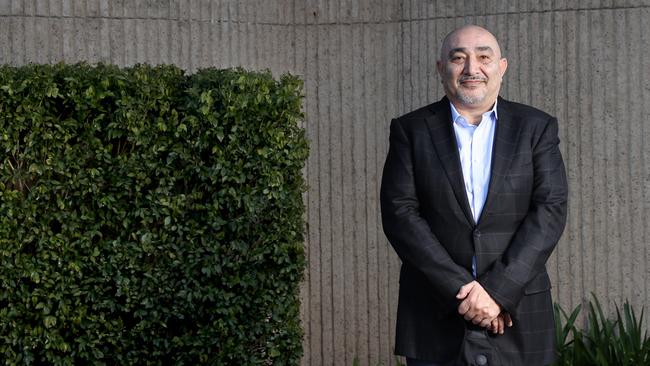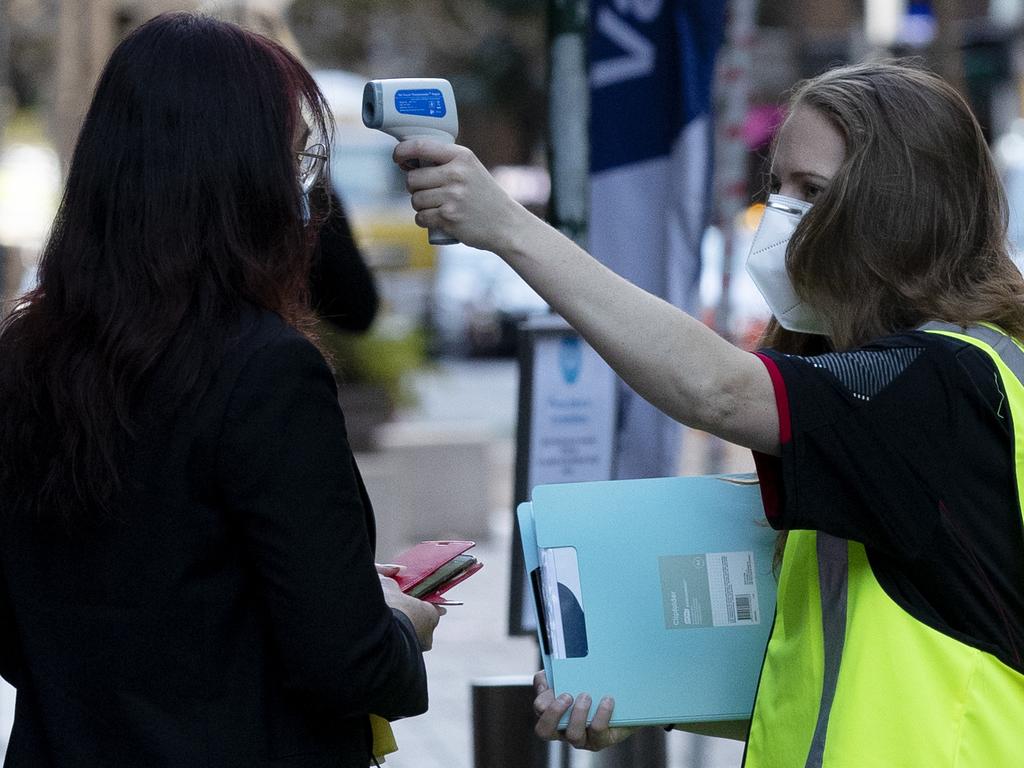SPC releases legal advice backing stance on mandatory Covid-19 vaccinations
SPC releases legal advice on why food workers are at greater risk of contracting Covid-19, supporting its ‘no jab, no work’ policy.

A Covid-19 outbreak at fruit and vegetable processor SPC could potentially cruel Australia’s orchardists in a similar way to how coronavirus decimated the US meat industry, according to legal advice the company has obtained.
Legal advice from insurance-focused law firm Gilchrist Connell has revealed that SPC’s plan to ban workers who are not vaccinated against Covid-19 is reasonable and within the law.
And if an employee had an adverse reaction to the jab, they may be covered under the workers compensation insurance scheme.
The advice comes as SPC has been the target of anti-vaxxers and what chairman Hussein Rifai branded “keyboard warriors” who have threatened to boycott the company’s tinned fruit and vegetables over its vaccination policy.
But Gilchrist Connell principal Joel Zyngier said given SPC was Australia’s “dominant processor of stone fruits” its ‘no jab, no work’ policy was fair.
“12 months ago we didn’t have the option of vaccination, it wasn’t a reasonably practicable step. Six months ago, we didn’t have the option of vaccination, it wasn’t a reasonably practicable step. Now it’s a reasonably practicable step and so it’s something that employers must consider as part of their occupational health and safety or work health and safety duties,” Mr Zyngier said.
“Covid is a significant business risk for any food producer. A Covid-related closure at SPC during the summer harvest could mean ripened fruit is unable to be processed and so, wasted.
“This would have devastating impacts on employees, orchardists, the Shepparton community and SPC’s business. Further, as SPC is the dominant processor of stone fruits in Australia, orchardists would have few other options to sell their produce.”
Mr Zyngier drew parallels with the US meat industry, the abattoir floors of which were conducive to spreading coronavirus, which infected more than 17,300 meat and poultry processing workers in April and May last year. Plant shutdowns at these abattoirs slashed American beef and pork production by one-third, leading to an oversupply of hogs.
Farmers who could not make room for hogs in their fast-filling barns had to destroy the animals, including young pigs, either shooting them one by one, gassing them with carbon dioxide or electrocuting them. “It’s not what any of us signed up for,” Iowa farmer Mike Paustian told The Wall Street Journal.
Covid infecting food workers is not confined to the US, with Victoria experiencing Covid clusters at meat works from Brooklyn in Melbourne’s western suburbs to Colac on the fringe of the Otway ranges during the state’s second wave last year.
“Social distancing and the effect of personal protective equipment have their limitations,” Mr Zyngier said.
“At the height of the pandemic in the USA in 2020, the pig meat industry was devastated by Covid in working circumstances similar to those at SPC. Many other employers in Australia will face similar risks.”
Last week the Fair Work Ombudsman updated its advice, confirming that in certain circumstances, it will be lawful and reasonable for employers to direct employees to have the vaccination.
“The Fair Work Ombudsman’s advice substantially aligns with SPC’s position and stated aims,” Mr Zyngier said.
SPC chairman Hussein Rifai said if a worker’s doctor found them at higher risk to experience a rare adverse reaction to the Covid vaccination, such as the blood clots linked to the AstraZeneca jab, they would be treated on case-by-case basis.
“We would obviously support them in any way and we would work with their families to try to act as compassionately as we can,” Mr Rifai said,
But Mr Zyngier said if a worker experienced an adverse reaction they may be entitled to workers compensation.
“If somebody is required to get a vaccination, as part of their employment, and then they suffer an adverse reaction, it would be expected that they could make a workers compensation claim.
“I don‘t think employers should be too worried about being left out in the cold, having to pay money for employees to have adverse reactions, that’s what workers compensation insurance schemes are there for.”
Mr Zyngier said SPC’s circumstances were not unique and was surprised other companies had not followed its lead.
“But it is early days, and the Fair Work Ombudsman has just released its updated guidance material.
“I would expect that companies, particularly with workers in tier one and tier two as identified by the federal government will be taking those steps – not for all workers but for particular workers who are at greater risk, or who might place the community at greater risk.”
Meanwhile, Mr Rifai said the “mind boggles” that there was still a debate around Covid vaccination.
“This is a pandemic that you experience once in 100 years. You would think people would put aside all the debating and the politics and do what is right,” Mr Rifai said.
“This is based on science. Let’s do it, right? When other people’s freedom stops, this is a stage where you’re not taking the vaccine just for you, it’s about everyone else.”








To join the conversation, please log in. Don't have an account? Register
Join the conversation, you are commenting as Logout